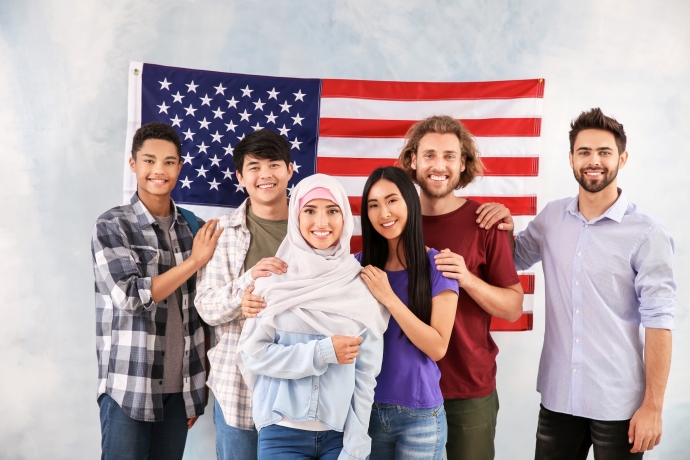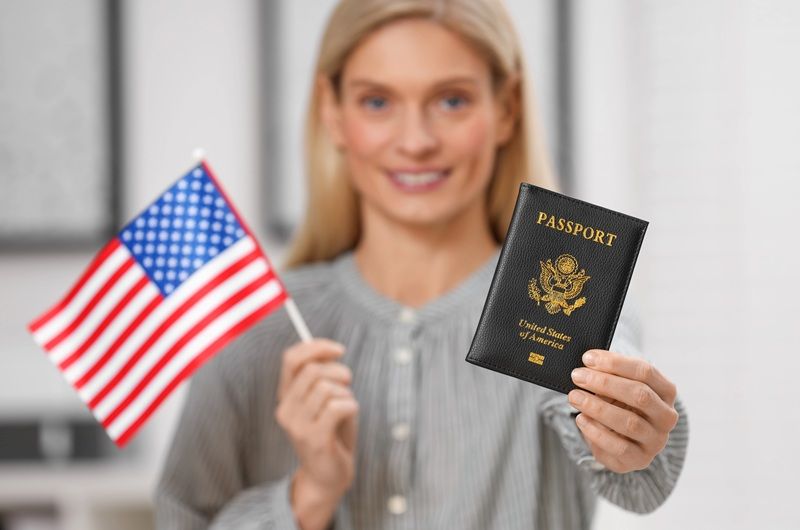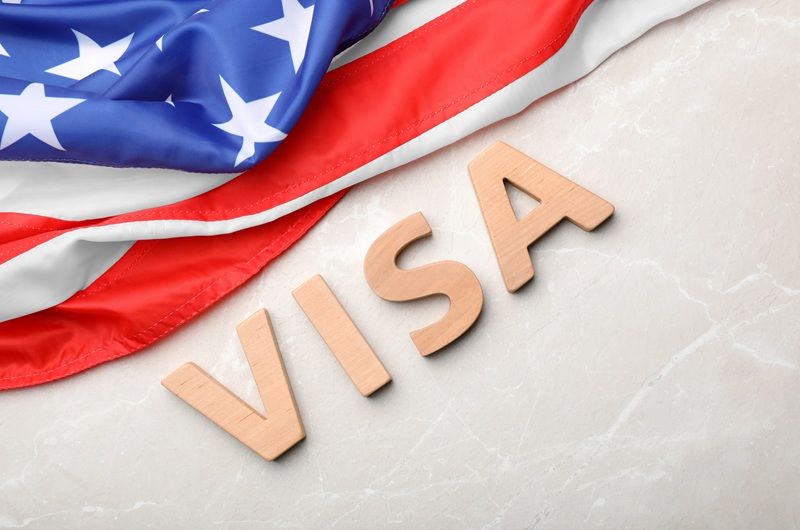Green Card Types In The US – Complete Guide
Green Cards, also known as Permanent Resident Cards, are essential documents for non-citizens who wish to permanently live and work in the United States. The types of Green Cards available in the US vary based on factors such as family relationships, employment, and humanitarian reasons.
As a Green Card holder, you will enjoy many benefits, including the right to live and work in the US without restrictions, travel outside the US, and the eligibility to apply for US citizenship.
Understanding the different types of Green Cards is crucial for anyone who wants to start the immigration process. In this blog, you will learn about the various types of Green Cards available in the US and the eligibility requirements for each.
In addition, you will find out about the application process and what to expect as you navigate the immigration system. Whether you are interested in obtaining a Green Card through family, employment, or a humanitarian program, this guide will provide you with the information you need to get started. So, if you are ready to take the first step towards obtaining a Green Card, read on to discover the different types of Green Cards in the U.S.

Family-Based Green Cards
Family-based Green Cards are available to individuals with close relatives who are US citizens or lawful permanent residents. This type of Green Card is based on the family relationship between the applicant and the sponsor, a US citizen or lawful permanent resident. Family-based Green Cards are divided into Immediate Relatives of US citizens and Family Preference Categories.
Immediate Relatives Of US Citizens
Immediate Relatives of US citizens are eligible for an unlimited number of Green Cards and are given priority in the immigration process. This category includes the spouse, unmarried children under the age of 21, and parents of US citizens. To be eligible for a Green Card as an Immediate Relative, the applicant must prove the existence of a bona fide relationship with their sponsor.
For spouses of US citizens, the sponsor must provide evidence of their marriage and the authenticity of the relationship. Unmarried children under the age of 21 must prove that they are the biological or adopted child of the US citizen sponsor. Parents of US citizens must prove their relationship through birth certificates or other official documents.
Once the relationship has been established, the applicant must complete the necessary forms and provide supporting documents, including proof of their identity, their sponsor’s US citizenship, and any additional documents required for their specific category. The applicant must also undergo a medical examination and a security check to ensure they are not inadmissible to the US. In most cases, the Green Card process for Immediate Relatives of US citizens is straightforward and relatively quick.
Estimated Timeline For Immediate Relatives To Receive Green Cards
According to the U.S. Citizenship and Immigration Services (USCIS), the expected timeline for receiving a Green Card for Immediate Relatives of US citizens can vary, but it typically takes several months to complete. The exact timeline depends on several factors, such as the applicant’s location, the workload of the USCIS, and the completeness of the application.
In general, the USCIS estimates that it takes about six to 10 months for the Green Card process for Immediate Relatives of US citizens to be completed, from the time the sponsor files the petition (Form I-130) until the applicant receives their Green Card. However, this timeline can change depending on the individual case and circumstances.
It is important to note that these are only estimated timelines and may not reflect the actual processing time for a particular case. The USCIS website provides the most up-to-date information on processing times, including average processing times for specific forms and local field offices. You can also check the status of your case online using the USCIS case status tool.
Family Preference Categories
The Family Preference Categories are for individuals who are not Immediate Relatives of US citizens. There are four categories under this sub-section, each with its eligibility requirements and application process. These categories include the following.
- First Preference (F1) category is for unmarried children of US citizens 21 years or older.
- Second Preference (F2) is a category for the spouse and children of lawful permanent residents.
- Third Preference (F3) category is for the married children of US citizens.
- Fourth Preference (F4) category is for the siblings of US citizens.
To be eligible for a Green Card under any Family Preference Category, the applicant must have a close relative who is a US citizen or lawful permanent resident willing to sponsor them. Additionally, the applicant must meet the eligibility requirements for their specific category and follow the proper application process.
The expected timeline for receiving a Green Card through the Family Preference Categories can vary greatly depending on several factors, including the individual’s specific category and the availability of visas in that category. The U.S. Department of State (DOS) releases a monthly Visa Bulletin that provides updated information on visa availability for each type. The DOS website provides the most up-to-date information on visa availability and processing times.
According to the latest February 2023 Visa Bulletin, the expected processing time for Green Cards through the Family Preference Categories can range from several months to several years, depending on the individual case and the current demand for visas in a particular category. For example, the processing time for the Third Preference (F3) Category ranges from 10 to 23 years, depending on the applicant’s priority date and country of origin.
Employment-Based Green Card
The Employment-Based Green Card category is for foreign workers seeking to work and live permanently in the United States. This category is designed for individuals who have been offered a job in the US by a US employer willing to sponsor them.
The eligibility requirements, application process, and timeline for receiving a Green Card through the Employment-Based Green Card category can vary greatly depending on the individual’s specific type and the demand for visas in that category. The USCIS provides detailed information on the eligibility requirements and application process for each of the five preferences on its website.
The Diversity Visa Program
The Diversity Visa Program, also known as the Green Card Lottery, is a program established by the US government to provide opportunities for individuals from countries with low immigration rates to the US to live and work permanently. The program aims to diversify the US immigrant population and promote cultural exchange.
To participate, individuals must complete an online application open for a short period each year and be selected through a random computer-generated lottery system. They must meet education/work experience requirements and other criteria to be eligible.
Green Card Through Registry
The US government established the Green Card Through Registry program to allow individuals who have lived in the US for an extended period to become permanent residents.
To be eligible for a Green Card Through Registry, individuals must meet several criteria, including a continuous residency in the US since January 1, 1972, good moral character, and not being inadmissible under the immigration laws of the US. Individuals who have been in the US on a temporary visa, such as a student or work visa, may still be eligible for a Green Card Through Registry if they have lived in the US continuously for the required period.
The application process for a Green Card Through Registry involves filing Form I-485, Application to Register Permanent Residence or Adjust Status, with the USCIS. The USCIS will review the application to determine the individual’s eligibility and conduct a background check to ensure they are not inadmissible under the immigration laws of the US.
It is important to note that individuals eligible for a Green Card Through Registry may still be subject to removal from the US if they violate the terms of their Green Card, such as committing a crime or violating immigration laws.
Humanitarian Green Cards
Humanitarian Green Cards are a type of Green Card for individuals in the US due to humanitarian reasons and are not eligible for other types of immigration benefits. The US government established the humanitarian Green Card programs to provide protection and a pathway to permanent residency for individuals who face persecution, danger, or other serious harm in their home countries.
- Asylum: This program provides Green Cards to individuals who have fled their home country due to persecution or fear of persecution.
- Refugee Resettlement: This program provides Green Cards to individuals who had to the US as refugees and have been living in the US for at least one year.
- Special Immigrant Juvenile Status: This program provides Green Cards to individuals under the age of 21 when they entered the US and were declared dependent on a juvenile court in the US due to abuse, neglect, or abandonment by one or both parents.
The application process for a Humanitarian Green Card involves filing the appropriate form with the USCIS, including Form I-589, Application for Asylum, and Withholding of Removal, for those seeking asylum. The USCIS will review the application to determine the individual’s eligibility and conduct a background check to ensure they are not inadmissible under the immigration laws of the US.
Given the importance of getting a Green Card and the consequences of mistakes during the application process, it is often wise to seek the assistance of an experienced immigration lawyer.

Hire A Lincoln-Goldfinch Law – Abogados de Inmigración Immigration Attorney
Hiring an experienced immigration lawyer is essential for individuals seeking a Green Card in the US. An immigration lawyer can provide valuable assistance throughout the application process, including helping to determine which type of Green Card is best suited to your individual needs and circumstances, preparing and filing the necessary forms, representing you in front of the USCIS and the immigration courts, and providing guidance and support throughout the entire process.
Lincoln-Goldfinch Law – Abogados de Inmigración has experienced immigration lawyers who are committed to helping clients navigate the complexities of the Green Card application process. They provide personalized guidance and support to help you obtain the Green Card you need to live and work in the US. Their team of experienced immigration lawyers has a strong track record of success in helping clients obtain Green Cards and is dedicated to helping you achieve your goals.
If you seek a Green Card in the US, now is the time to take action. Contact Lincoln-Goldfinch Law – Abogados de Inmigración today to schedule a consultation and take the first step towards a bright future in the US.
Contact A U.S. Immigration Attorney Today!
Categories
How To Find Us
What Our Clients Say
“This Lawfirm is great, very professional and helpful. I love that they are always in communication and always available for when you have questions . 100% recommended by me and my family. Thank you Lincoln-Goldfinch Law – Abogados de Inmigración”





